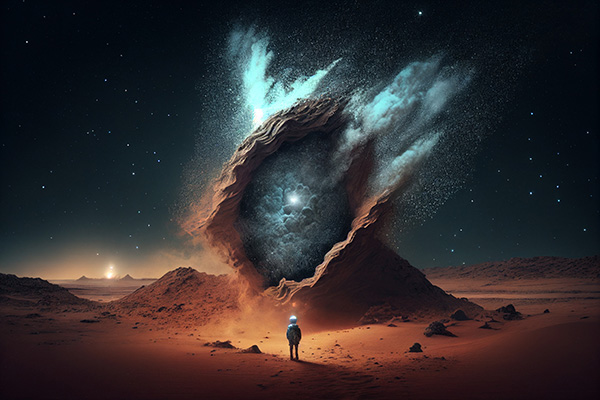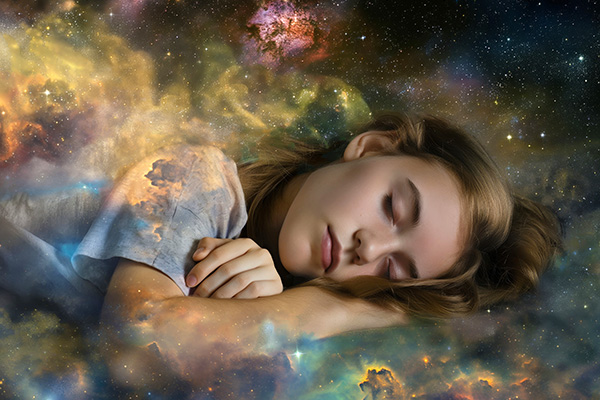Dreams
The Mysteries, Messages And Magic Of Meteorites
 Meteorites have long intrigued me as one of the great mysteries of the universe. They’ve fascinated me for years, not only because they survive their fiery descent through Earth’s atmosphere in such an epic and awe-inspiring way, but also because of their extraordinary origins.
Meteorites have long intrigued me as one of the great mysteries of the universe. They’ve fascinated me for years, not only because they survive their fiery descent through Earth’s atmosphere in such an epic and awe-inspiring way, but also because of their extraordinary origins.
Recently, I acquired a small piece of meteorite from Campo del Cielo, a renowned celestial fragment discovered by Spanish explorers in Argentina in 1576. It now graces my altar with it cosmic presence, enhancing the energy of my home and sparking some fun conversations!
Their origins are diverse. Some come from asteroids or comets, others from planetary bodies.
However, what I find especially captivating about these “messengers from space” is that they offer more than just scientific insights into the birth of our solar system.
Even more compelling is the spiritual and esoteric significance they’ve held throughout human history. Across time and tradition, they continue to be revered as powerful allies in spirituality and metaphysics.
Many lithotherapy practitioners believe meteorites are gifts from the divine, reminding us of our eternal connection to the cosmos. They are symbols of spiritual awakening, transformation, and divine wisdom.
Ancient civilizations used them for meditation and healing, to connect with higher realms, and to catalyze personal growth. Because they are quite literally “otherworldly,” meteorites offer us a cosmic perspective and invite us to reflect on our place within the grand tapestry of existence.
Spiritual Strategies For A Loving Relationship
 Over the years I have worked with many clients who either want to improve an existing relationship or manifest a new relationship.
Over the years I have worked with many clients who either want to improve an existing relationship or manifest a new relationship.
In my readings, I have seen that most of us carry patterns, energy blocks, or emotional knots that quietly affect our love lives. Many people describe the same inner cycle: a longing for deeper connection followed by fear, self-doubt, and frustration.
Depending on the needs to the particular individual or couple, I often recommend a few simple yet powerful practices that can shift the romantic energy field and open the heart.
These practices are gentle and effective, working not just on the emotional level but on the spiritual and energetic levels as well. They help clients reconnect with their inner wisdom and realign with love.
We tend to overthink our love lives. We analyze our relationships from every angle, hoping to find the answers in logic.
But love is not a puzzle to be solved. It is a frequency to be attuned to. And when we work with spiritual tools, we allow ourselves to rise above the clutter of thought and enter a state of clarity and openness.
I have found that the following practices, when done consistently, create a soft and supportive foundation for emotional healing and soulful connection. They do not require dramatic effort or complex rituals. They are simple shifts in intention and awareness that can lead to powerful outcomes.




